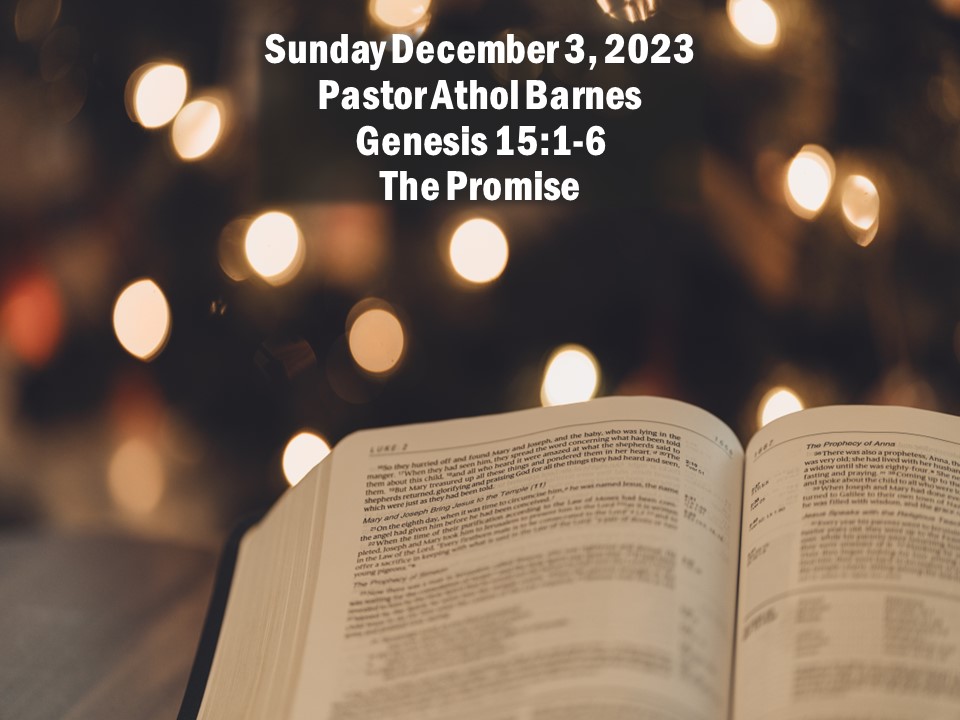
Do you remember a time in your life when God felt distant. A season when you were tempted to wonder if God was even concerned about the things that you were struggling with. Maybe you are there right now.
The Bible frequently deals with the theme of God’s perceived absence. Many times, in the Bible, people wondered if God’s promises to them were still valid. Perhaps God had forgotten them.
The beauty of the biblical narrative is that the Bible not only acknowledges this soul ache, it also provides an answer. Christmas is one of God’s clearest reminders that He intends to come and live with us. Christmas, the incarnation, is a reminder of God with us, the ultimate longing fulfilled.
Abraham was given an incredible promise by God. Abraham was to have a son and he would be the father of a nation that would bless all the nations of the world (Genesis 12:1-3). God visited Abraham at least four times and reiterated this promise and Abraham believed God (Genesis 15:6).
But the fruition of the promise took years and even decades. As the years ticked by, doubt may have begun to set in, had God forgotten His promise?
Many of us have felt the same way, when we have received a promise from God, or we have been praying for a miracle, but it seemed that maybe God has forgotten us.
Abraham and Sarah were keenly aware of their age and what seemed to be impossible, could God really deliver on His promise? Had He forgotten them?
Finally, when Abraham was almost 100 years old and Sarah was over 90 years old, God blessed them with a miraculous baby boy, and they named him Isaac. God fulfilled His promise and the family line that would lead to Jesus coming as the Messiah had begun.
Isaac was not only a joy for Abraham and Sarah, he was an integral part of God’s plan for the salvation of the world through Jesus who would be born 2000 years later as a fulfillment of many promises. When God answers our prayers, we thank the Lord for the blessing, but we don’t always see the greater implications of God’s provision. When God blesses us, it is with a plan to bless others as well through that blessing.
When our daughter was born and miraculously given to us, we rightly thought that she was a blessing to our family, but little did we know how much of a blessing she would be to so many other people. God’s blessings are not for us to keep and hold on to, but they are to be given back to the Lord for His purposes so that others can be blessed.
Isaac, the son of the promise was dedicated to God, and through Isaac God would bless the whole earth. Generations later, through another miraculous son in this line, God would keep another promise. That child, Jesus Christ, would forever and finally prove that however slow God seems, his “slowness” is not a sign of his absence (2 Peter 3:9).
God is not slow; He is patient, and His timing is always perfect. That distinction gives us the ability to be patient too, waiting on him to fulfill his promises.
Sometimes, God will act immediately in answer to our prayers, healing an illness, reconciling a broken relationship, or ending an addiction as an example. But on many occasions, God may ask us to wait. Some people are called to carry the cross of pain and heartache for much longer than they anticipated.
Either way, do we trust God for the outcome? Do we praise God in the waiting and the hoping? If we don’t walk in hope and trust in God, the waiting will discourage us, eating at us, destroying us if we lose hope.
The first candle of the Advent wreath is the hope candle. As we focus on the birth of Jesus in this season, we can look back and see hundreds of promises that God has fulfilled. And we can look forward with assurance, that God will fulfill His promises in the future in His perfect timing. We are a people of hope (Ephesians 2:12-13). And as His children, we have the promise of eternal life with Christ, a promise that is secure by the word of God.
But what about today?
This Advent, do you feel like God is moving too slowly, or not moving at all? Maybe you are in a season where God feels distant, He seems far off, and you wonder if God has heard your prayers. Does God really see you?
The promises of God’s word inform us that He does see you. If you have given submitted your life to the Lordship of Jesus Christ, He is intimately involved in working out the perfect plans that He has for your life.
And as we trust and wait, we must avoid trying to do what only God can do. Our natural tendency is to run ahead of God and not trust Him in the waiting.
We are a people of hope, and we can trust in the immeasurable power and love of God over our lives.



